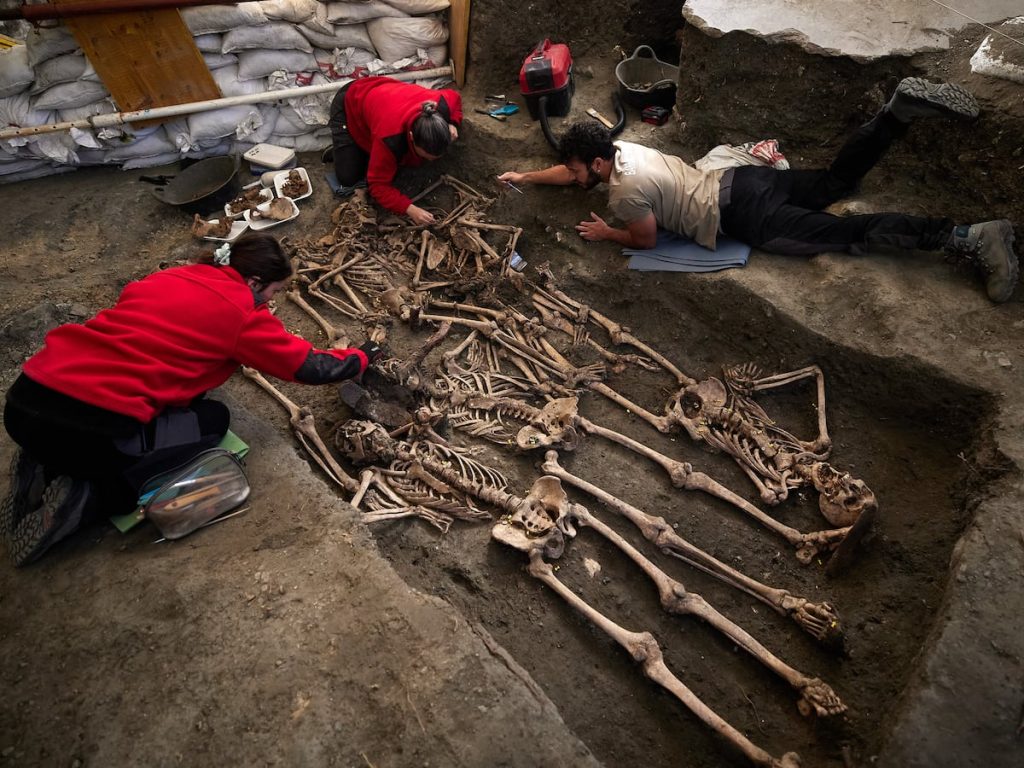After analyzing the initiatives of the PP and Vox bipartite governments to repeal regional memory laws and replace them with others called “conciliation” laws, the United Nations urges Spain to adopt “all necessary measures to ensure strict respect for international human rights standards in preserving the historical memory of serious human rights violations.” The government has already announced that it will challenge the right-wing and far-right offensive against memory laws in the Constitutional Court and has sought support from the European Parliament and the Council of Europe. The UN report, signed by three special rapporteurs, warns that these new laws could infringe on Spain’s obligation to preserve the historical memory of human rights violations committed during the Franco era and the Civil War, and potentially limit access to the truth about victims.
The UN report criticizes the PP and Vox initiatives for avoiding condemning the Franco regime and potentially promoting revisionist or denialist theories about the Civil War and dictatorship. Specifically, they highlight the Concordia law project in the Valencian Community, which references victims of the II Republic, ETA terrorism, and Islamic terrorism, undermining the aim of memory laws to address the needs of Franco and Civil War victims. The proposed new legislation in Valencia seeks to recognize all victims of political and social violence in the country, citing the existing law on terrorism victims to justify its enactment.
The report reminds Spain of its international obligations under various human rights treaties and emphasizes that all levels of government must protect human rights and preserve the historical memory of rights violations. Failure to comply with these obligations could jeopardize Spain’s responsibility under international law. The United Nations has been closely monitoring the situation in Spain, with past reports highlighting the deficiencies of existing memory laws and the government’s efforts to improve them. The 2022 Democratic Memory Law, incorporating recommendations from the UN, underscores the importance of collective memory in building a democratic culture and respecting human rights.
The UN report underscores the importance of Spain preserving the collective memory of human rights violations during the Franco era and Civil War to foster a culture of democracy and respect for human rights. In addition, it highlights the role of memory laws in addressing contemporary issues related to exclusion, discrimination, marginalization, and abuse of power. The report reinforces the international standards that Spain must uphold in ensuring that the historical truth is acknowledged and that victims of past atrocities are properly recognized and honored.
The UN report raises concerns about the potential consequences of dismantling existing memory laws and replacing them with conciliation laws that may distort historical truths and obscure past human rights violations. It underscores the importance of upholding international human rights standards in preserving historical memory and ensuring accountability for past atrocities. By challenging the initiatives of the PP and Vox governments, the UN is urging Spain to fulfill its obligations under international law and protect the rights of victims of human rights abuses during the Franco era and Civil War. It calls for a comprehensive approach to memory preservation that promotes truth, justice, reparation, and non-repetition to build a culture of democracy and respect for human rights in Spain.


